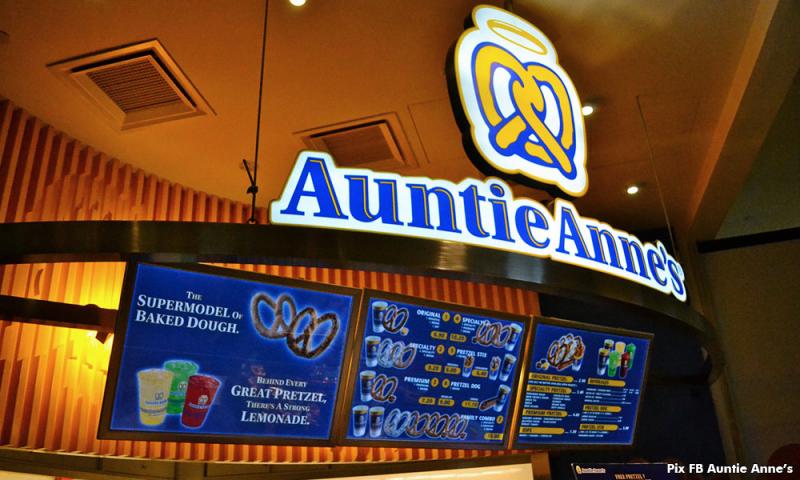'Pretzel Dog', a sausage wrapped in a pretzel, is one of the reasons why popular pretzel chain Auntie Anne's was not granted halal certification by the Department of Islamic Development (Jakim).
Auntie Anne's quality assurance cum halal executive Farhatul Kamilah Mohamed Sazali said the company has proposed a new name and is awaiting feedback from Jakim.
Section 3.7.4 of the Malaysian halal food guidelines states: "Halal food and halal artificial flavour shall not be named or synonymously named after non-halal products such as ham, bak kut teh, bacon, beer, rum and others that might create confusion."
"Once we have Jakim's decision, we will change our menu boards before making a fresh application (for halal status)," she wrote on Facebook.
She said Jakim also instructed Auntie Anne's to apply for certification for its central kitchen, and to make separate applications for outlets according to zones to simplify the auditing process.
Farhatul said the initial application was for all 45 outlets in Malaysia.
"This happened to Sushi King as well, which initially only had halal certification for several outlets because the certification was granted according to zones even though the products are from one central kitchen," she wrote.
She stressed that Auntie Anne's is striving to pass the Jakim's stringent halal audit, which also involves hygiene and cleanliness checks on outlets and food handlers.
She also urged Muslims who feel doubtful over Auntie Anne's products, to refrain from consuming the products until the Jakim certification is obtained.
"I am also a Muslim and this is my obligation as a Muslim. Pray that I succeed in securing the halal certification," she said.
"Once Auntie Anne's is certified halal by Jakim, I suggest that you try Eclair Six and Jalapeno Cheese, because they are both my favourite products," she quipped.
Last month Rural and Regional Development Minister Ismail Sabri proposed that procedures for halal certification be relaxed for bumiputera-owned firms where all workers are Muslim.
He says this is because such firms have limited capital to fulfill Jakim's stringent requirements.
Following this, the Malaysian Muslim Consumers Association (PPIM) urged a two-tier halal certificate to assist small traders who have difficulty meeting Jakim's requirements.
PPIM estimates that less than 20 percent of halal certificate holders are Muslim corporations because Malay traders find it difficult to surpass Jakim's hurdles.
PPIM also opposed Rubber Industry Smallholders Development Authority (Risda)'s move to launch a halal logo specifically for Muslim-made products.
The 'by Muslims' logo, said to be to help Muslim entrepreneurs make forays into halal markets locally and abroad, would cause confusion, said PPIM.





